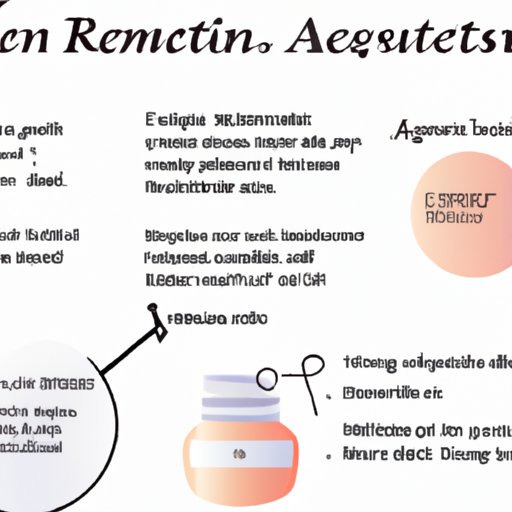Introduction
Retinol is a powerful skincare ingredient that has been used for decades to treat a variety of skin concerns. It is known for its anti-aging benefits, but what about its effect on acne-prone skin? While retinol is often touted as an effective acne treatment, there is much debate as to whether it can actually cause breakouts. In this article, we will explore the pros and cons of using retinol for acne-prone skin, and discuss how to use it safely and effectively.
Is Retinol Causing Your Breakouts?
Before we dive into the pros and cons of retinol for acne-prone skin, let’s first look at how retinol affects acne. Retinol is a form of vitamin A, and works by speeding up cell turnover and unclogging pores. This helps to decrease the amount of bacteria that can cause breakouts, as well as reduce inflammation. However, some people may experience purging or an initial increase in breakouts when they start using retinol. This is due to the fact that the retinol is causing the existing clogged pores to come to the surface more quickly than normal, resulting in a temporary increase in breakouts before they start to clear up. It is important to note that while this purging period can be uncomfortable, it is a sign that the retinol is working, and should not be a cause for concern.
It is also important to consider other potential causes of breakouts when using retinol, such as environmental factors, hormones, diet, and even stress. If you find that your breakouts are not improving with the use of retinol, it is best to speak to a dermatologist to rule out any underlying conditions or triggers.
How to Use Retinol Safely if You Have Acne-Prone Skin
If you decide to try retinol for your acne-prone skin, there are a few things to keep in mind. First, it is important to choose the right product. Look for a product that contains a low concentration of retinol, as this is less likely to irritate your skin. It is also important to pay attention to the other ingredients in the product, as some ingredients can make your skin more sensitive to the retinol. Finally, make sure to use sunscreen during the day, as retinol can make your skin more sensitive to UV rays.
Next, you should understand the proper dosage and frequency of retinol use. Start slowly, using the product only once or twice a week, and gradually increasing the frequency as your skin adjusts. Too much retinol can lead to irritation, so it is important to find the right balance for your skin. Finally, know when to stop using retinol. If you find that your skin is too sensitive or irritated, it is best to take a break from the product until your skin has had time to recover.
Understanding Retinol’s Role in Treating Acne
Now that we have discussed how to use retinol safely, let’s look at the pros and cons of using it for acne treatment. One of the biggest benefits of retinol is its ability to unclog pores and reduce inflammation. This can help to prevent new breakouts from forming, as well as reduce the appearance of existing blemishes. Additionally, retinol has been shown to stimulate collagen production, which can help to improve the overall appearance of the skin.
However, there are also risks associated with using retinol on acne-prone skin. Retinol can cause dryness and irritation, which can worsen existing breakouts. It is also important to note that retinol can make your skin more sensitive to the sun, so it is essential to use sunscreen every day when using retinol. Finally, retinol can be harsh on the skin, so it is important to use it sparingly and never use it more than directed.
Evaluating the Effectiveness of Retinol for Acne Treatment
While there is much debate as to whether retinol is an effective acne treatment, there have been some clinical studies that suggest it may help. In one study, participants who used a retinol serum experienced a significant reduction in the number of acne lesions after eight weeks. Another study found that participants who used a retinol cream twice daily for 12 weeks experienced a reduction in the severity of their acne.
It is important to note, however, that these results may not be applicable to everyone. Factors such as skin type, lifestyle, and genetics can all play a role in how effective retinol is for treating acne. It is best to speak to a dermatologist if you are considering using retinol for acne treatment.
Conclusion
In conclusion, retinol can be a beneficial ingredient for acne-prone skin, but it is important to use it safely and responsibly. While it can help to reduce inflammation and unclog pores, it can also cause irritation and dryness. Additionally, it is important to consider other potential causes of breakouts, such as hormones and diet, when using retinol. Finally, it is best to speak to a dermatologist if you are considering using retinol for acne treatment, as they can help you determine the best course of action for your individual skin type and needs.
Overall, retinol can be a helpful tool in treating acne, but it is important to use it correctly and be aware of any potential risks. With the right approach and knowledge, you can enjoy the benefits of retinol without compromising your skin’s health.


